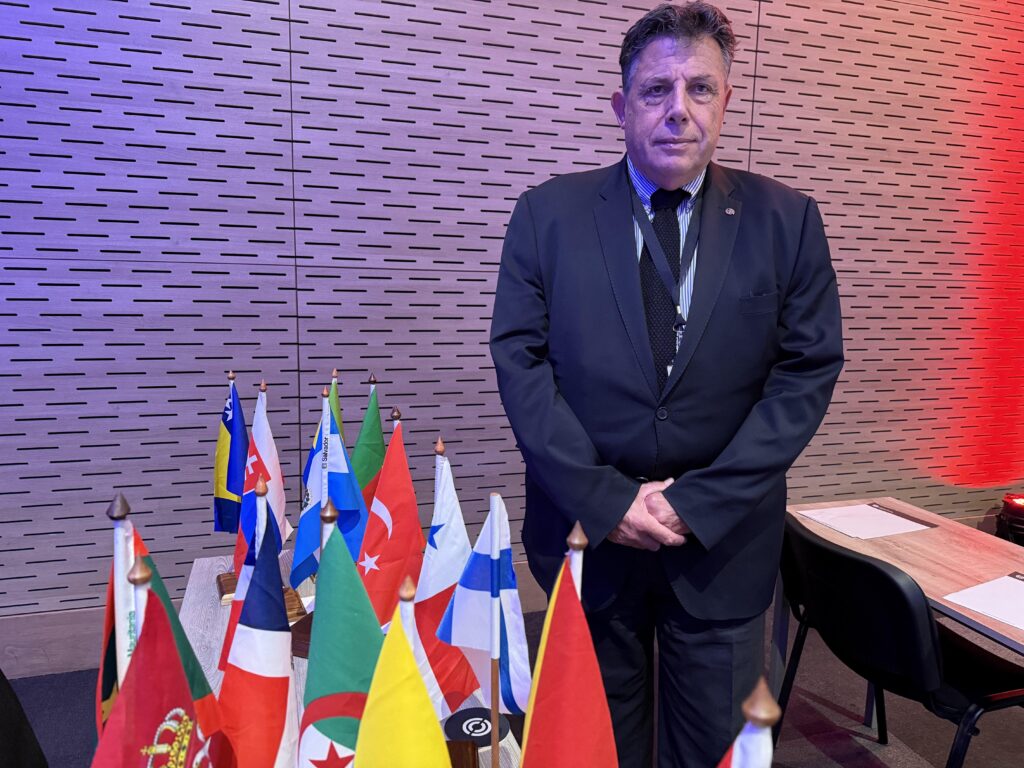Türkmen Terzi, Cape Town
Duro Sessa, president of the International Association of Judges (IAJ), has expressed concern over the state of judicial independence in Turkey, saying that “things are not developing in Turkey in a way that ensures the independence of the judiciary.”
The IAJ, founded in 1953 in Salzburg, is a global organization that promotes judicial independence and upholds standards for fair justice systems worldwide.
IAJ President Sessa, who is also a Supreme Court judge in Croatia, made these remarks at the IAJ’s 66th annual meeting in Cape Town, held from October 18 to 22. During a break in the conference, he responded* to questions from Turkish Minute.
Could you introduce yourself, your organization, and talk about this program?
My name is Đuro Sessa. I am a judge on the Supreme Court of the Republic of Croatia and currently president of the International Association of Judges. I was elected just last year at our meeting in Taiwan. My mandate is for two years, so we will hold new elections at the next meeting in 2025 for the president and the board. Our organization, founded in Salzburg in 1953, promotes the independence of the judiciary and justice. Judicial independence is possible if states follow standards developed by many international forums, such as the United Nations, the Council of Europe and the European Union, and these standards continue to evolve. We aim to address and make international issues in the judiciary visible, urging governments and organizations to resolve them and apply pressure on countries to meet these standards. Every citizen worldwide should be guaranteed an independent judiciary.
What impact does artificial intelligence (AI) have on the judiciary, and how is the European Union handling AI in the courts?
Artificial intelligence is already present in the judiciary, and we aim to make its use meaningful. Ultimately, a human judge must weigh the evidence and the complexity of the case, rather than relying solely on algorithmic results. This is our key message, which has also been reinforced in many international forums, especially the Council of Europe. AI should assist judges, providing them access to case law and information. However, every case has unique aspects, which require individual consideration by a judge or panel.
You recently made a statement about Turkey. Since the coup attempt, over 4,000 judges and prosecutors have been dismissed, with 2,500 still imprisoned. Turkey has also ignored European Court of Human Rights rulings in high-profile cases. What are your thoughts on the state of the judiciary in Turkey?
Unfortunately, judicial independence in Turkey is not being maintained. Although YARSAV, the association of Turkish judges, was dissolved, we still recognize it as a member — a symbol of our support for Turkey’s dismissed and jailed judges. We advocate internationally for these judges, highlighting cases such as Murat Aslan, who remains imprisoned and was denied release under Turkish law. We are committed to keeping international attention on Turkey’s judiciary. One achievement in this regard is that Aslan received the Václav Havel Human Rights Prize from the Council of Europe — an award representing all Turkish judges’ struggle.
It’s difficult to predict how the situation in Turkey will end, given the political factors involved. However, we believe judicial independence must be upheld, not for judges alone but for the citizens they serve.
The IAJ recently issued a statement on Turkey’s European Court of Human Rights infringement process. Are you actively monitoring it?
Yes, we are monitoring it closely through our branch, the European Association of Judges, a regional group of the IAJ that follows the European Court of Human Rights (ECtHR). The rulings are crucial to us, and we also participate in Council of Europe events addressing Turkey’s judiciary. Political relations between Europe and Turkey are a separate issue; as a judicial organization, we strive to remain above realpolitik.

